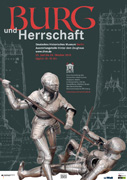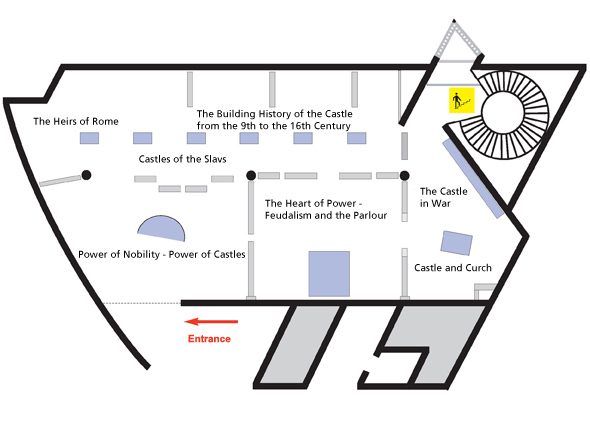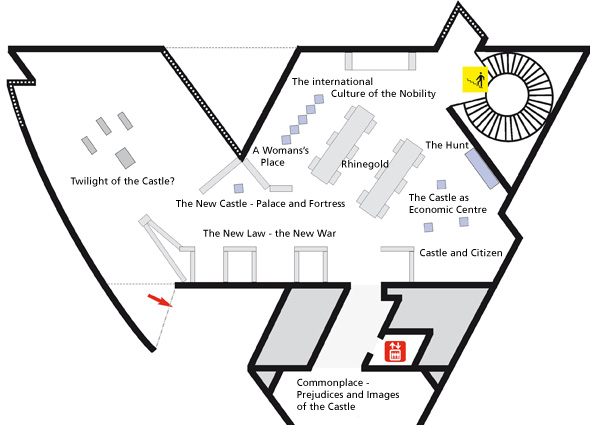



The prince-electors had the sole right to elect the King, a right derived from property, privileges and descent. In 1356 the Golden Bull fixed the Electoral College at altogether seven ecclesiastical and secular electors, consisting of the Archbishops of Mainz, Cologne and Trier as well as the Count Palatine of the Rhine, the Duke of Saxony, the Margrave of Brandenburg and the King of Bohemia. The document also guaranteed them the sovereign right to collect duties and the privilege of minting gold coins. The four first-mentioned Rhenish electors controlled the Middle Rhine, one of the most important economic areas of the realm. They had already begun collecting customs along the Rhine in the 11th century; they minted a key European currency, the Rhenish gulden. Around 1300 there were already some 40 customs houses along the Rhine. Castles secured them and the neighbouring mints. The revenues fostered the growth of the princely territories and thus expanded the power of the Rhenish electors.


